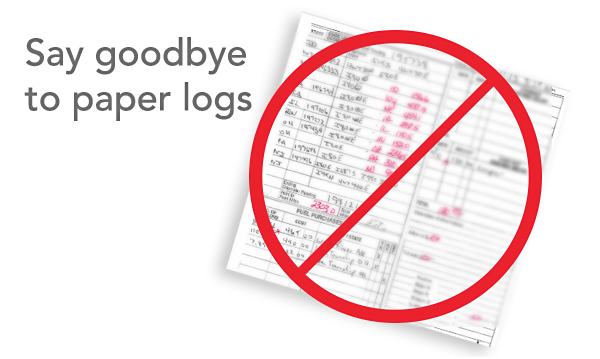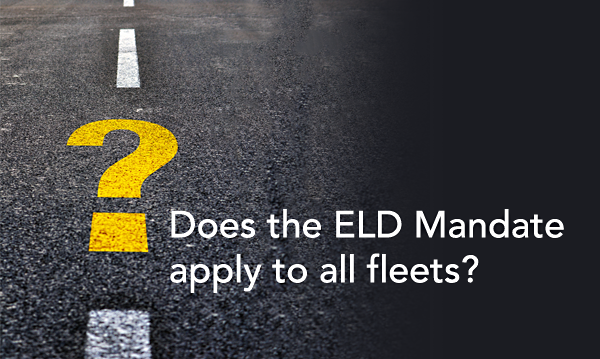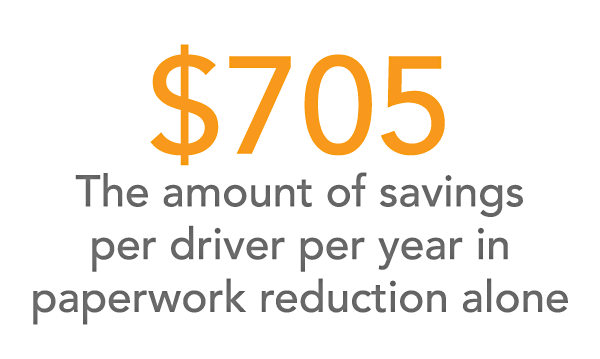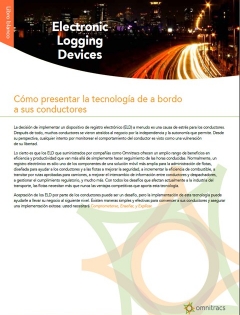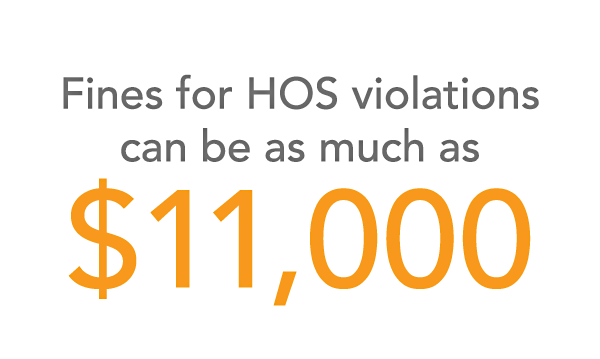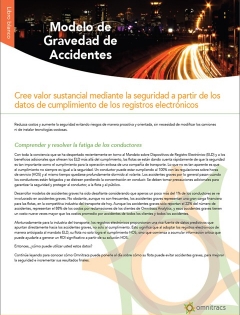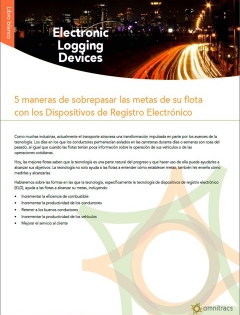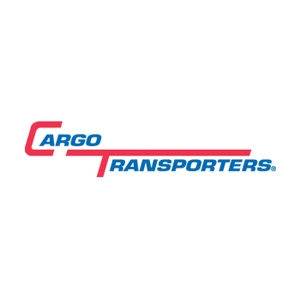Confused about the Electronic Logging Device (ELD) mandate?
Omnitracs is here to help. As the pioneer of vehicle telematics with over 25 years of experience, we are committed to bringing you the latest information from industry experts on the ELD mandate, what it means for fleet operations, and how to leverage this new piece of legislation for maximum benefit.
How do I know if I need to file Record of Duty Status (RODS)?
Most drivers must follow HOS regulations if they drive a commercial motor vehicle. If you are involved in interstate commerce, you must comply with HOS regulations if:
- Your vehicle is 10,001 pounds or more
- Your vehicle has a gross vehicle weight rating or gross combination weight rating of 10,001 pounds or more
- Your vehicle is designed or used to transport 16 or more passengers (including the driver) not for compensation
- Your vehicle is designed or used to transport 9 or more passengers (including the driver) for compensation
- Your vehicle is transporting hazardous materials in a quantity requiring placards
What if the mandate doesn’t apply to me?
It is key to remember that although the FMCSA has outlined certain exemptions, ELD technology is not just about compliance. Those who are not required to implement ELDs can still realize the same benefits as those who are mandated to adopt.
The FMCSA weighed a variety of criteria prior to making a decision around the mandate and outlined key benefits of adopting ELD solutions. With electronic driver logs, fleets can:
- Build a culture of safety around your trucking fleet, compared to “just enough” compliance. E-Logs give safety managers the tools they need to understand all areas of compliance. Safety managers and dispatchers can work together on loads that are within HOS requirements. Drivers can be alerted when low drive or on-duty time is near
- Start immediately building ROI: slash fuel costs, drastically reduce paperwork, increase driver communication, and charge for detention time
- Reduce major violations, including Form and Manner, which are the most frequent violations.
- Accurately account for all aspects of the business, including on-duty and drive time, enabling fleet managers to identify where time may be leaking from current processes
How can ELDs save drivers time?
- Reduce HOS paperwork time by 15 minutes a day
- Add another 5 – 10 hours a week of drive time by rounding to the nearest minute for stops (unlike paper logbooks which require drivers to round up to the nearest 15 minutes)
- Reduce time spent on tedious check-calls and sending hours to dispatch
- Reduce the amount of paperwork, allowing drivers to get burdensome tasks off of their plates and focus on doing what they do best—driving.
Omnitracs offers the most comprehensive set of solutions to ensure fleets get the most out of the Electronic Logging Device mandate
Omnitracs has many products that can help fleets maximize the benefits of ELD technology, regardless of whether or not they are required to comply with the mandate.
The Omnitracs Difference
Through our extensive range of applications, Omnitracs offers benefits that other, less innovative companies cannot match.
Libro blanco: Cree valor sustancial mediante la seguridad a partir de los datos de cumplimiento de los registros electrónicos
Productivity
Many less experienced and less innovative telematics providers focus only on meeting the minimum requirements set by law. At Omnitracs, we realize the true value in any solution is to go beyond simple compliance. Omnitracs has long been regarded as the leader in productivity solutions, enabling fleets to get the most out of this new technology.
Customer Service
There have been many telematics providers entering the market in recent years looking to capitalize on the Electronic Logging Device mandate. However, they have employed a “transactional” type of business model, where they heavily invest in customer acquisition, but do little to ensure customer success. These newcomers do not have the expertise to support change, whereas Omnitracs experts enable fleets to capitalize on the latest industry innovations and changes to regulatory landscape.

